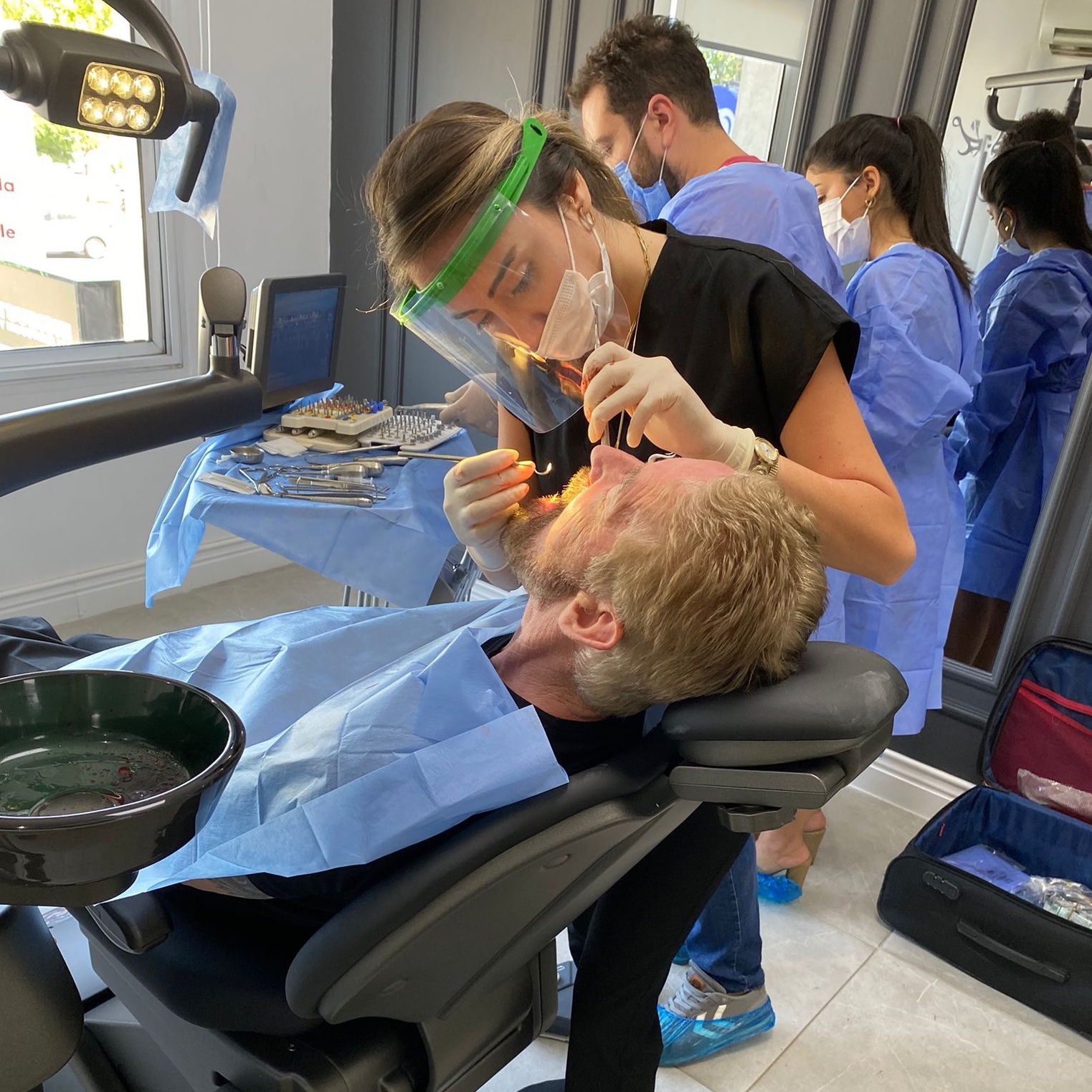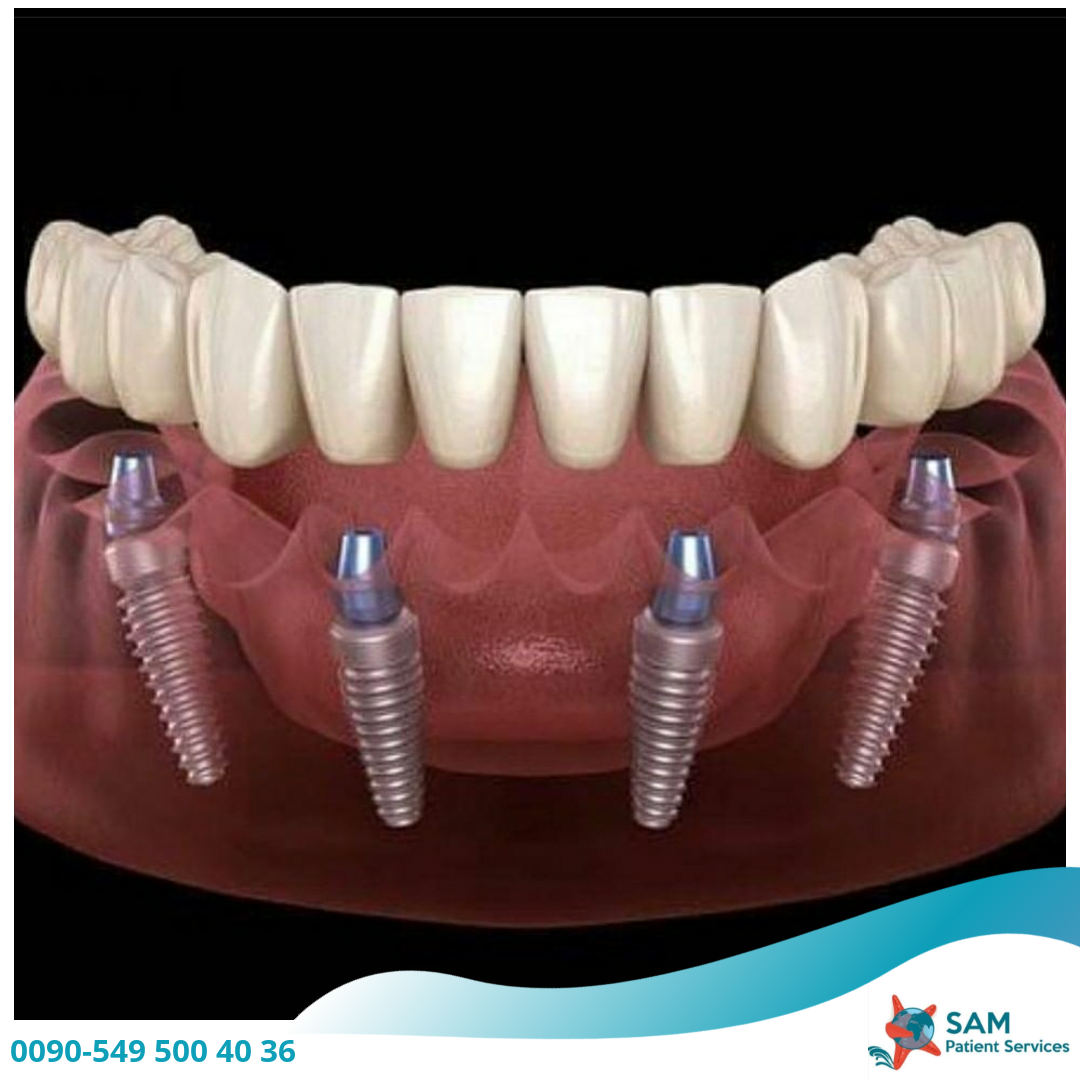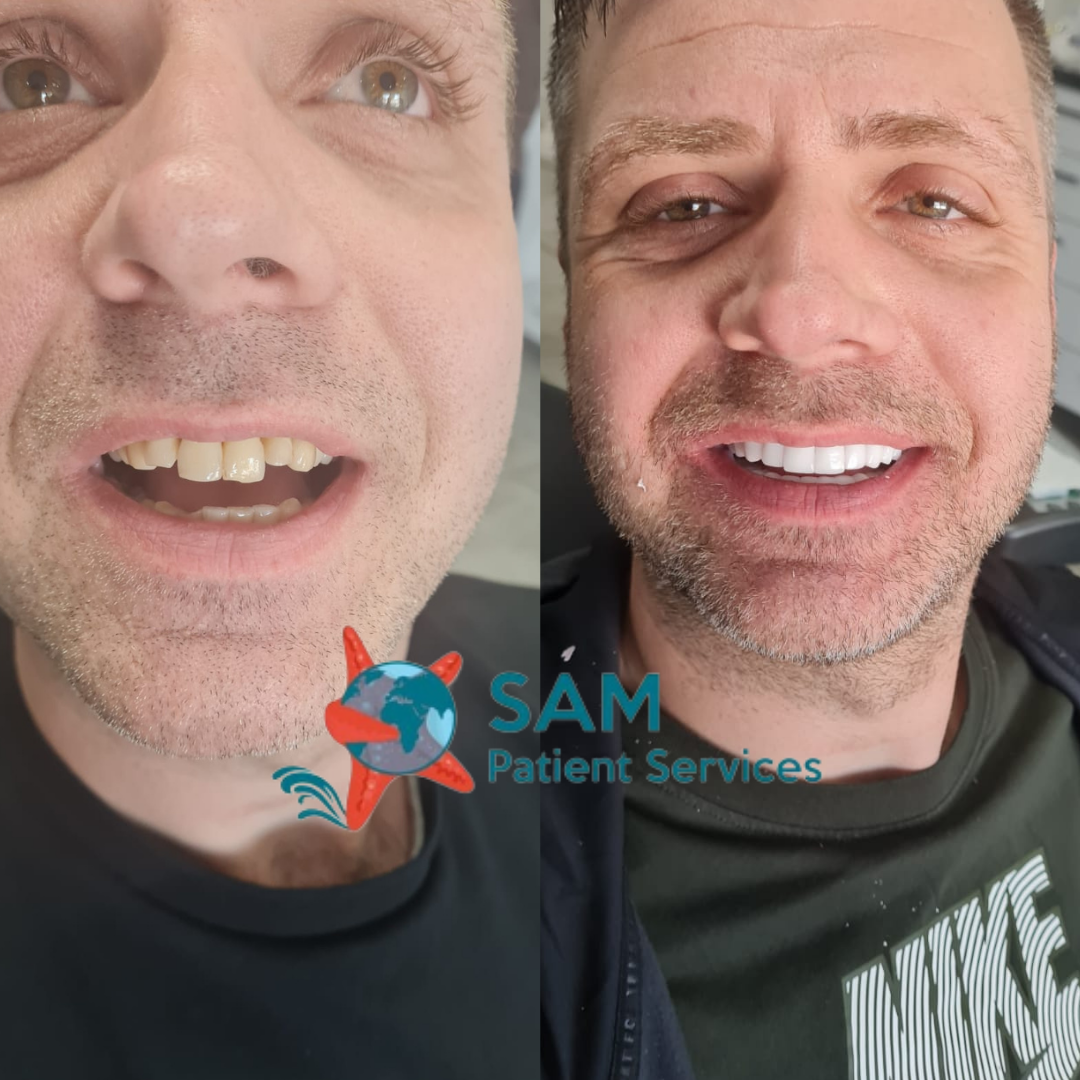What are the Types of Dental Implants?
The most widely used type of dental implants today are implants with a 'screw' shape. Types of dental implants are determined according to the area they are placed on and the supporting tissues.
Types are:
- Transosseous (Transmandibular) implants
- Intramucosal inserts
- Subperiostal implants
- Endosserous (endostal) implants
- Endodontic stabilizers
Subperiostal Implants
In subperiostal implants, it is prepared according to the size taken on the bone exposed by surgical interventions. Subperiostal Implants made from metal and fine alloys have a cage-like shape. They are made on the bone under the periost. These implants are placed on the alveolar bone. They spread the chewing power to the entire bone. It is not applied to every patient.
Endosserous Implants
These implants are placed directly into the bone. They function together with the bone as a function. It can be in the form of screws or cylinders. It can be used as screw implant, cylinder implant, blade implant.
1. What is Implant?
Implants are the closest form of treatment to the original that replaces teeth with today's technology. Implants provide many times better chewing and speaking functions than other dental treatments. It is the most used dental aesthetic method today.
Implants are a method that can be used for many years with an accurate diagnosis with sufficient knowledge and experience of the physician, and successful results can be obtained especially for the patient.
Implants can be defined as an artificial tooth root placed in the jaw bone to restore the tasks and aesthetic postures of lost or broken teeth.
2. Can implant treatment be applied to everyone?
The implants are the roots of screws of certain thickness and width, which are placed in the root of the tooth. Therefore, the bone ratio of the place (chin) to be applied should be sufficient. The fact that the existing jaw bone is strong means having a quality implant and the percentage of success increases. However, it is one of the conditions that the gum should also be healthy. It is more suitable for people who have completed bone development, which means that the person has completed the age of 18.
3. Is the implant a painful application?
For implant placement, the most appropriate method of anesthesia is used to prevent the person from feeling pain or pain. Local or general anesthesia is applied according to the preference of the person. The person may feel mild pain after the procedure, and this situation removes the pain with low dose painkillers.
4. What will be done during the implant examination?
In the implant examination, the person gives the necessary information about the health problems. In this case, the physician can decide whether the person is suitable for the implant by looking at the jaw structure and bone condition, and if necessary, x-ray and analysis may be requested. As a result, models of the place where the implant will be applied are removed.
5. Are implant treatment methods 100% successful?
There are some things to remember in implant treatment. These patients have chronic illnesses, how long it heals. The physician needs to be very meticulous in this regard.With the quality of the implants and care of the patient's implants, it is inevitable to be successful when these three elements come together.
6. How long do implants last?
Implants last for a long time, but as a result of the patient taking good care of the implant and fulfilling the necessity of oral care, there is no problem in the long term.
7. If implants are not accepted by the body?
Implant materials are made of materials that will not cause an allergic reaction that our body cannot refuse.It is usually made of titanium, these materials are immediately accepted from the body relief because they do not produce harmful organisms or bacteria to the body.
8. Do implants have a chance to fail?
People may be unsuccessful because oral care and implant cleaning cannot be controlled by a physician. However, this is a very low rate. If it is not used badly, it can be used for many years if it is placed successfully.
9. What are the advantages of implant treatment?
Food can be eaten better, food is chewed for a long time, has the appearance of a natural tooth. It increases self-esteem and affects healthy eating.
10. What are the disadvantages of implant treatment?
Costs and care for the tooth




